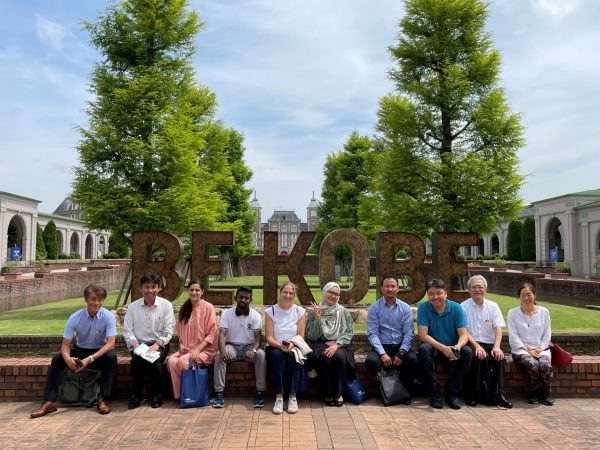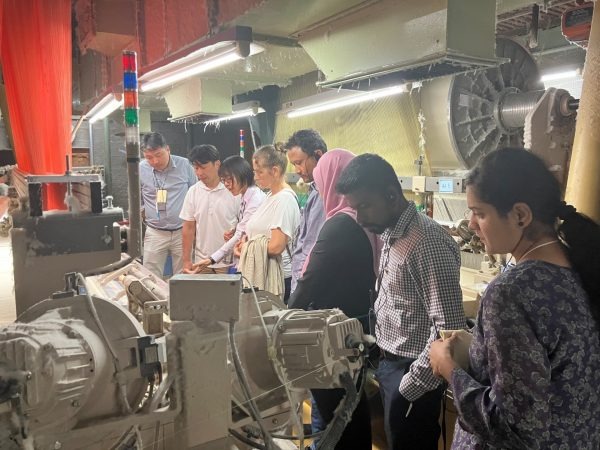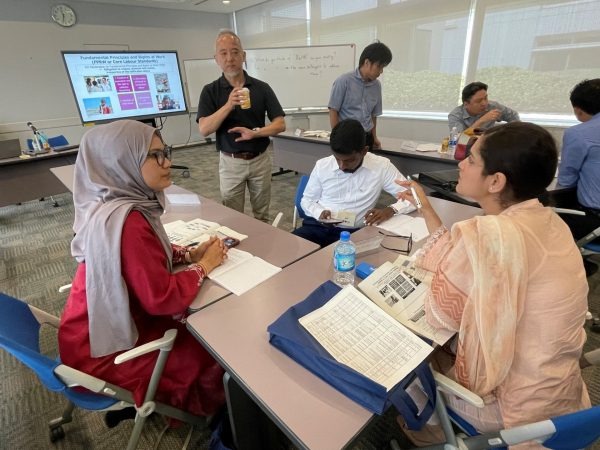
Category
Schedule
June 12 ~ July 6, 2023 *Training Period
Country / Member
- Bhutan
- Malaysia
- Mongolia
- Pakistan
- Serbia
- Sri Lanka
Target
For Foreign Employees Working in Japan
Participants
Government/public agencies and regional government staff involved in export promotion, chambers of commerce, 6 people from 6 countries in management in business and private organizations, etc.
The goal of this training course is to learn about export promotion policies that work to foster and develop industries. Government agencies, export promotion organizations as well as chambers of commerce, etc. who are involved with export promotion participated.
Schedule
June 12 ~ July 6, 2023 *Training Period
Course Leader
GOTO Kenta, Professor, Faculty of Economics, Kansai University
Client Organization
JICA Kansai
SDGs
Persons in Charge
OZAKI, OGAWA
A Learning Experience in Co-Creation That Online Platforms Cannot Provide
In the training course, with an objective evaluation (such as data analysis) of the strong points and uniqueness of products in the participants’ nations, participants studied and inquired about marketing and promotion for export mainly to markets in advanced countries focusing on markets as their starting point. The course also included various items needed to be taken into consideration in a variety of businesses and business deals, the influence of economic agreements and consideration of human rights due diligence in value chain. Business frameworks and trends in a global environment were also included.
After a 3.5-year hiatus the course in Japan was resumed. The difficulty of visiting the production and sales sites of Japanese companies during the remote course period was overcome. Participants were able to greatly increase their understanding through actually listening to lectures and receiving answers from people working on site in each field.
Also, after spending about 3 weeks living and eating together and with a sense of mutual trust growing among the participants, discussion and information exchange increased. Participants began to offer questions and evaluations from their own perspective on content studied by each participant. Course leader Professor Goto also communicated with each participant. There were enthusiastic question and answer sessions in each lecture making this a ‘co-creative’ progressing course.


